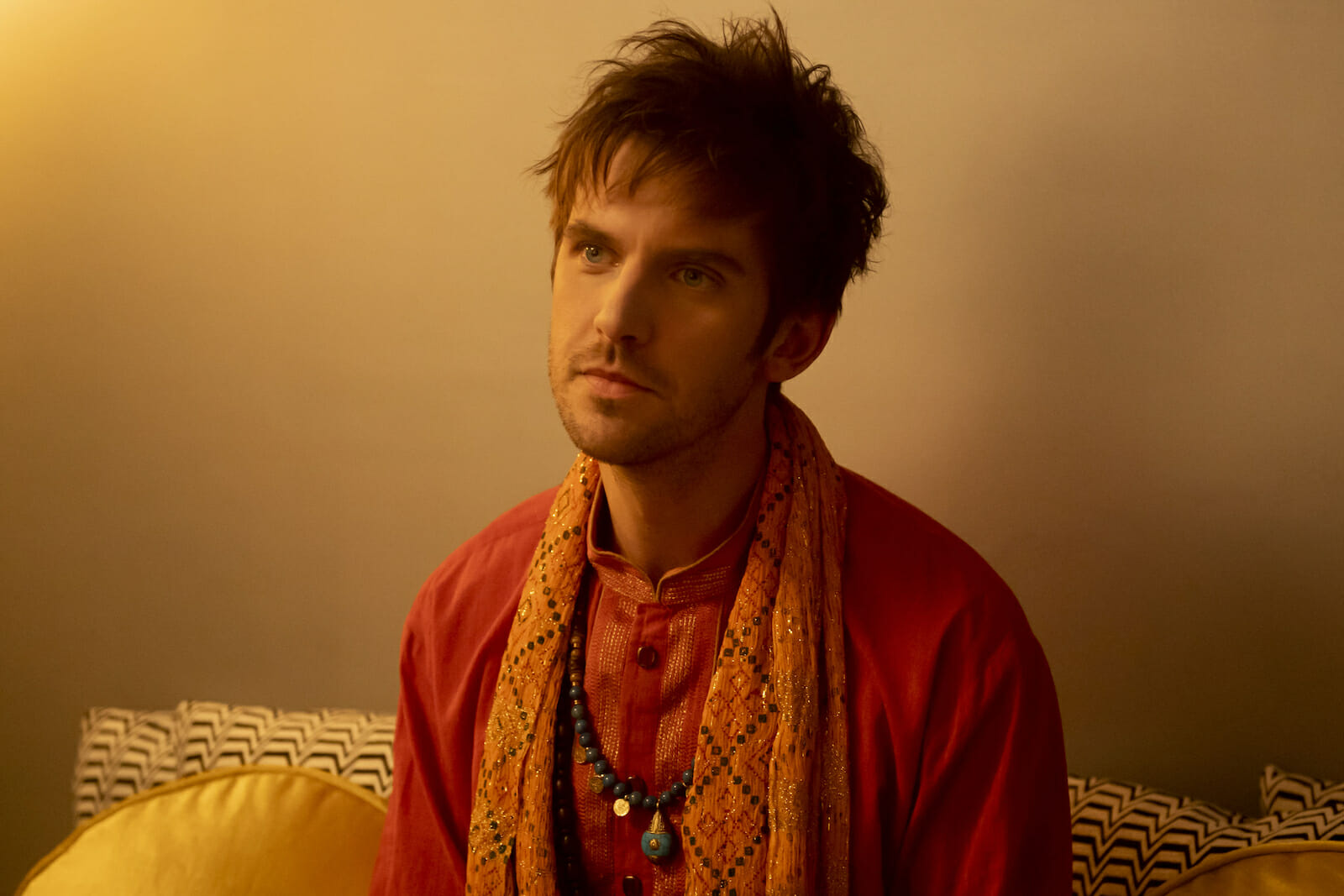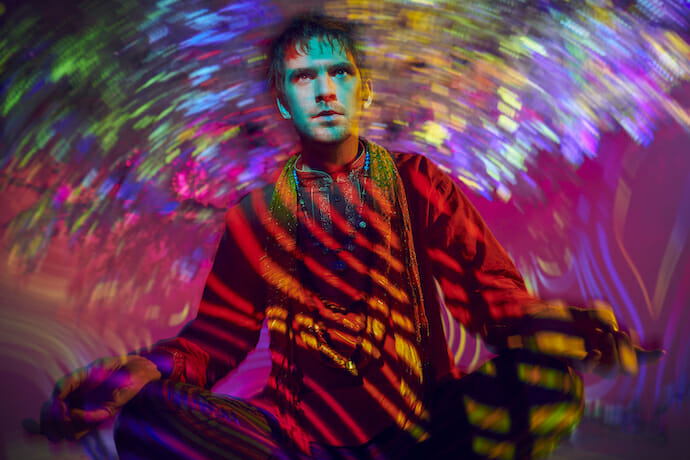
In A Few Years, You’ll Regret Not Watching ‘Legion’
In a year that gave us Avengers: Endgame, the bombastic, but ultimately entertaining blockbuster event, another Marvel property ended, with two characters fading away from existence, in a moment you might believe invokes Thanos’ climactic “Snap” at the end of Avengers: Infinity War. But it’s something different than that. It’s something more powerful than that or what you typically see in other Marvel properties, more nuanced, more based on these specific characters, their history and what they are feeling in this moment.
This is the ending of Legion, Noah Hawley’s X-Men(ish…?) spinoff TV-series that lasted for 3 seasons on FX. In those seasons is enough groundbreaking TV to last it far longer into the future. It’s not often that something this weird, off-kilter, psychedelic, punk, strange and subversive gets made. And even if it was, it would be dismissed as a fluke, not given a 3-season order. It’s even rarer that a show like this be tied to one of the biggest pop-culture brands in the world. But Legion is this and so much more. It received little love from either the Emmys or viewers in the here-and-now. But I have a feeling this is going to be a show that many more people are going to be turned onto and talk about in the years to come.
For those who are unaware, Legion is the story of David (Dan Stevens, most famous as the titular Beast in 2017’s Beauty and the Beast). David is a mutant who mistook his telepathy for madness, and the “reality vs. insanity” motif is one that informs much of his arc throughout the series. His love interest (and the show’s best character) is Syd, played exquisitely by relative-newcomer, Rachel Keller. Syd is also a mutant who met David at a psychiatric hospital, where they fell in love. Her power is switching bodies with whomever (or, in the case of her pet cat, whatever) she touches. Syd’s presence as a character, affection for David (that does eventually sour, to put it mildly), and troubled backstory are often the emotional anchor of the show whenever the series chooses to focus too much on David.

After they are taken to a facility for mutants called Summerland, David and Syd’s relationship is what much of the series revolves around, but I’d be remiss not to mention Lenny (Aubrey Plaza), a friend of David’s who may or may not be real. Truthfully, I’ve had the opinion for a while now that Lenny might actually be the weakest part of the show, but Plaza tackles the role with her typical enthusiasm and unpredictability. There’s also the Shadow King, eventually revealed to be the evil mutant Farouk (Navid Negahban), who took up residence in David’s mind and is the show’s main antagonist in multiple different forms throughout the series, but ends up having a surprising redemption arc. And how could I ever forget Cary (Bill Irwin), a middle-aged scientist, and Kerry (Amber Midthunder), a young Native American warrior? They both happen to share the same body, but their sibling-like relationship ends up being one of the most endearing aspects of the show. And don’t get me started on Melanie (Jean Smart) and Oliver (an impeccable Jemaine Clement, in easily his best role since the crab from Moana). They’re the older voices of reason who choose to live on an astral plane of existence, where one can choose to fight one’s enemies with either a dance or rap battle. Oh, and David is the son of someone significant that you’ve definitely heard of from X-Men.
I first got hooked on the show shortly after it came out in early 2017, as friends who knew me and my love of X-Men asked me if I had been watching it. I wasn’t the slightest bit familiar with the show or its original comic book source material, but it had enough personal recommendations for me to want to check it out. First thing off the bat, Legion basically tells you from the beginning that it’s not going to hold your hand. The show seems to openly admit and even boast about just how much of it will actually go over your heard. And yes, because of that (along with other issues), I will admit that Legion can be really flawed at times. At its worst, it can be pretentious, presumptuous, a little too confusing and a little too reliant on certain themes, ideas, and the music of Pink Floyd. At its best, it was like nothing else on TV. An X-Men show that owes more to David Lynch than it does the collective work of Stan Lee or Chris Claremont, or even the established aesthetic of the film series? For three seasons, it happened, and most of you didn’t even notice. For three seasons, Legion was one of the most consistently-solid TV shows on the air. As a superhero show, no less! And now that it’s over, I’m more affected about its ending than I thought I would be. It didn’t opt for a sophomore slump, or cheap theatrics to keep viewers engaged. Unlike a certain show about dragons on HBO, its conclusion felt worthy, and more importantly, earned. Legion’s writing was always top-notch, its intentions notably smarter than many other genre TV shows. It’s the sort of show that is easily binged in a weekend, which I believe will also only contribute to its longevity.
In fact, if one considers the time in which Legion was airing, it seems all the more revolutionary. As the age of the comic-book movie continues its dominance in pop culture, Legion provided something different, something I believe could melt the hearts of even the most cynical sufferers of “superhero fatigue.” Because the show is not a traditional superhero narrative, it is much more focused on themes and characters than climactic set-pieces or jaw-dropping cliffhangers. I’ve told friends that in many ways, Legion resembles the act of reading a comic book. Devotees of the medium will know that sometimes, because of the overwhelming nature of the narrative or a missed issue here-or-there, it can be hard to keep track of various subplots and details. Legion captures this sensation perfectly, and its experimental structure frequently invokes the feeling a comic-book reader might get during a particularly jarring splash page, or seeing the difference between the illustrations of two different artists working on the same series. In a superhero-TV landscape dominated by CW’s plucky, spunky alt-Justice League or Netflix’s adult-oriented Marvel shows, it is Legion who has set the high-water mark for superheroic storytelling on the small screen. I don’t think we’ll be seeing anything else like it anytime soon.
But Legion also feels indicative of our times because of another one of its features: how utterly trippy it is. Legion is a show that begs you to get into an altered state for it, a psychedelic avant-garde comic-book adaptation for the growing percentage of the county where pot has been legalized. Entertainment Weekly once described this show as “What if X-Men, but with drugs?” Nothing can more succinctly or sufficiently describe the show’s relationship to drug culture. Strange, kaleidoscopic visuals abound in Legion and is another reason I believe the show will only continue to gather fans.
From Syd’s emotional monologue to David after a startling confession to seeing Jason Mantzoukas (co-host of my favorite podcast, “How Did This Get Made?”) as a bizarrely-dressed, eccentric astral-plane resident simply known as “The Wolf,” from a truly haunting, ghoulish-looking Shadow King to a set of mustached, androgynous androids with mechanical voices named Vermillions, things about this show will linger with me for a long time. And if I could fault the show for anything, it’s that individual episodes don’t stick out as much when the general flow of the show seems so season-specific. Someone recently said it feels like three 1-season shows in some ways, and that sounds pretty accurate. Each individual season has its own specific set of strengths and weaknesses. But the show learned and got better as it went along, transforming into something that was always memorable but didn’t overstay its welcome. I believe this show and its legacy will reverberate, particularly as a template as to how to successfully adopt lesser-known, non-traditional comic book storylines. I can’t wait to see what Noah Hawley does after this, and where breakout stars like Rachel Keller and Amber Midthunder go from here…What a ride.

